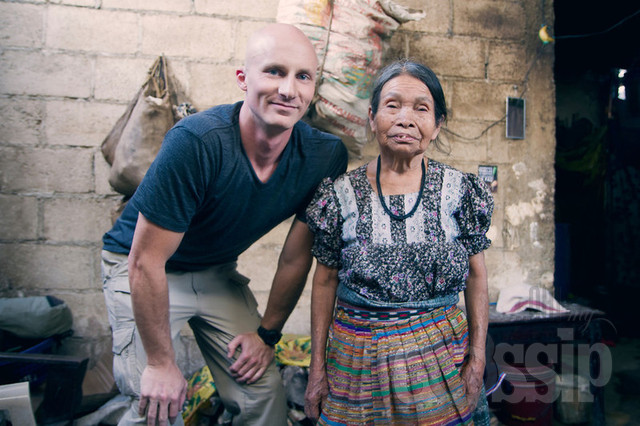OHMYGOSSIP — Has your sex life become a bit stale of late? If you and your partner aren’t enjoying intimacy as much as you used to, one of the following reasons could be to blame.
Helena-Reet Ennet
Soy foods can boost fertility
OHMYGOSSIP — Soy foods can combat the effects of a chemical that can lead to fertility problems, a new study has found. The chemical bisphenol A (BPA), found in certain plastic consumer products and the lining of some canned foods, has long been linked to conceiving troubles. This is because it has been found to disrupt conception and implantation of a fertilised egg in the womb. It can also mimic oestrogen in the body.
22 Presidents Day sales and deals from Sears, Nordstrom, Kohl, Amazon, Best Buy and more
OHMYGOSSIP — Presidents Day is a national holiday that falls on Feb. 15 this year. It is officially recognized by the U.S. government as George Washington’s Birthday, but many states also celebrate other presidents during this day.
23 Valentine’s Day 2016 coupons, deals and freebies
OHMYGOSSIP — Valentine’s Day is the most romantic day of the year, but it’s also one of the most expensive. In 2015, Americans spent an estimated $18.9 billion celebrating their loved ones — with people spending an average of $142.31 on candy, flowers, clothing and more. This year, spending is expected to reach an all time high — $19.7 billion — according to a National Retail Federation survey.
Benjamin Netanyahu’s party would prefer Trump rather than Clinton or Sanders says official
OHMYGOSSIP — Many in the Israeli right are coming out in favour of Marco Rubio as the U.S. presidential candidate likely to provide the most support to the Jewish state. A senior official of Likud, Benjamin Netanyahu’s political party, said in the Israeli Knesset last week that he would prefer Rubio, and as a second choice he nominated Ted Cruz.
Nevada set a Super Bowl record wagering handle at $132.5 million
OHMYGOSSIP — It was a boring game, and watching the replay would be a treatment for insomnia, but Super Bowl 50 will be remembered as a win for Peyton Manning and for producing a record wagering handle in Nevada. A total of $132.5 million was wagered at the state’s 194 sports books on Sunday’s game, according to figures released by the Nevada Gaming Control Board. The books showed a win of $13.3 million for a hold percentage of 10.1.
Lobbying for new Las Vegas stadium begins
OHMYGOSSIP — Las Vegas Sands’ pitch for a $1.2 billion domed football stadium on the UNLV campus is off and running. Steve Hill, the governor’s top economic development official and the chairman of a tourism infrastructure panel that will hear the stadium plan next month, said he met with Ed Roski, who owns Majestic Realty Co., a Sands partner on the project, reviewjournal.com mediates.
Here’s what’s included in the $200,000 Oscars gift bag
OHMYGOSSIP — This year‘s Oscars gift bag will contain a record $200,000 worth of swag, according to The Daily Beast. The bag reportedly includes high-end items such as a 10-day, first-class trip to Israel valued at $55,000 and a year of unlimited Audi car rentals from Silvercar, said to be worth $45,000.
30 Travel Tips by Matthew Karsten from Expert Vagabond
OHMYGOSSIP — It’s now been 4 years since I sold everything and left the United States to travel the world. These are the best travel tips I’ve discovered along the way. It all started when I took a one-way flight from Miami to Guatemala City, leaping nervously into the unknown and leaving much of my old life behind while embarking on an epic travel adventure around the world.
Top 10 Safety tips for women that can keep you safe and secured in life
OHMYGOSSIP — If you are a single woman who loves to travel or you stay alone, well then you must be aware of some safety tips. Women are vulnerable to crime all over the world. Listed are 10 safety tips that can keep you safe and secured in life. So read on to get that peace of mind.


